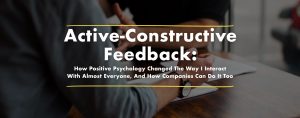If you thought FOMO was bad, prepare yourself for FOBO
If there was such a thing as famous words, FOMO would be among the brightest of stars. Put simply, FOMO is a word celebrity. Seriously. You can find hilarious viral videos about FOMO, like this one from Funny of Die) and you can find it listed in IMDB as the title of a short film. Recently, I was also amused to find out that a certain Hollywood A-lister is shopping a script on the topic. As the father of FOMO, when I hear something like that, I have just one thing to say: You’re welcome, Hollywood.
But here’s the crazy thing. FOMO was never meant to exist on its own. There’s another FO lurking in the shadows that will ruin your life.
I may sound dramatic, but I’m being serious.
FOBO, or Fear of a Better Option, is the insidious twin of FOMO. It keeps your from committing to any choice in case another, more optimal opportunity comes along. Thus, you find yourself stretching out the decision making processes (for decisions both big or small) for as long as possible. Then, at the very last minute, you pick whatever works best for you, without considering the effects your behavior has on those who are impacted by your indecision.
To put a fine point on it, I firmly believe that a chronic case of FOBO can turn you into a pretty rotten friend, colleague, business partner, and all-around person.
Today, I’ll dive into what you need to know about FOBO and why you shouldn’t tolerate it in yourself or in the people around you.
All right. So what’s FOBO?
When you were a child, you made around 3,000 decisions every day, from deciding if that weird-looking vegetable your mom is offering you is tasty to which is your current favorite toy, to the name of your imaginary friend; life was a lot more simple.
Once you’re an adult, this number grows more than ten times. Now, you’re deciding between the iPhone X and another new smartphone, whether you'll try that new Starbucks drink or stick to your usual, and who's going to fill in that vital position at your department.
When facing these decisions, you pass them through several lenses: your life experience, past disappointments, and yours and other people's expectations, among others. The more choices you have, the more you have to think about when you’re trying to make a decision. What if you choose the wrong thing. What if something better comes along the second, hour, day, or month you just opted for something else?
As a coping mechanism, you think to yourself: “I have an idea - I’ll just not decide!” You delay making decisions for as long as possible just in case something actually does come along.
Since you have no idea if or when a better option might show up, you’re indecision is affecting both you and the people around you in the meantime, and that has real effects on others. While having major FOBO over your next smartphone purchase probably won’t keep Tim Cook awake at night, keeping several job candidates on hold when you’re hiring your next colleague isn’t cool at all.
For the Cliff’s Notes on FOBO symptoms, watch out for:
- Refusing to settle for the options you have in front of you at a given moment.
- Putting yourself first without regards to anyone else.
- Waiting until you have as many options available as possible before moving forward.
- Living in the “maybe”, and operating your life based on “I’ll get back to you on that”.
- Dissapearing when it’s time to finalize plans.
- Cancelling at the last minute for another, shinier option.
How FOBO ruins lives
The main thing that separates FOBO from FOMO (or the BO from the MO) is intentionality. Whereas FOMO is almost involuntary, with FOBO you’re making a conscious choice - not to make any choice at all.
Think about those poor job candidates mentioned earlier. While they’re waiting on your decision, they are put in the unenviable position of having to manage other potential offers or stick it out in their current job. As they wait, they either grow resentful or potentially accept an offer from a rival firm. While you were twiddling your thumbs and looking for more options, you lost a great candidate.
Sadly, once you get FOMO at the office, you’ll find that it spreads - Ebola-like - to the rest of your life. The more you let FOBO guide your decision-making process, the more it becomes part of your personality. It ends up permeating every aspect of your personal and business relationships. Eventually, other people will notice that you are never their first choice. That’s when you’ll pay the price: the more people become accustomed to your pattern of FOBO, the less they will trust you, invite you, engage with you, and think that you have their best interests at heart. Someday, they’ll skip you for their own better option.
Is FOBO curable?
Let me check in with you here: As you read the paragraphs above, did you realize that you do have FOBO?
If you do. Panic.
Just kidding. Don’t panic. Being aware of what you’re doing is the first step to recovery. But it’s also a sign that you have a lot of work to do. Now that you know you are entrapped by FOBO, you need to take action. Here are some basic tips to start:
Accept that you can’t control whether or not you’ll get the best deal at all times
Perhaps Salvador Dali said it best when he quipped, “Have no fear of perfection, you’ll never reach it.”
In most every situation in life, you can’t control whether you achieve optimum outcome.
You. Can’t. Control. This.
Wasting time and resources in the pursuit of perfection will not guarantee that the final outcome will be as 
Don’t be afraid of saying no
One of my favorite books is called “Getting to Yes,” but sometimes, it’s way more important to get to NO instead.
At some point between our parents’’ generation and ours, it seems that we as a society became hesitant to say “no” to things. Instead, we prefer the easy way out of “maybe”, to lessen the punch and try to convince ourselves to turn it into a yes. But, be honest, how often does a FOBO-induced “maybe” become a firm “yes”? From my experience, it’s nearly never.
So, rather than delay the inevitable negative, “Just say No” today.
Follow the Golden Rule
Lastly, when you feel FOBO coming on, consider the good old Golden Rule. It’s old, it’s a little hokey, but it works.
Try to set an example for the people around you by treating them as you’d like to be treated. If you want to receive a quick response to your pitch, be the person who gives a fast response. If you want the Starbucks line to move faster, don’t be the person holding it back with their indecision. If you prefer a kind rejection from your last Tinder date than being ghosted, don’t string people along.
FOBO is a learned behavior, but it can be unlearned as well. And while you might think that cutting down your options will mean you’ll suffer, you’ll find it is actually entirely liberating.




